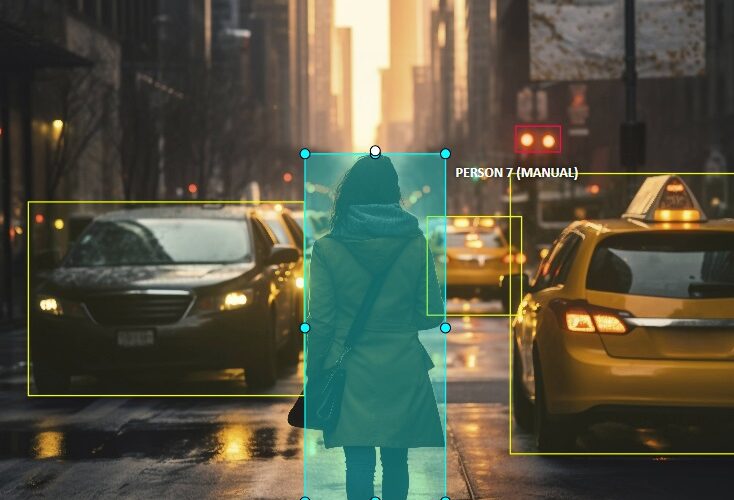How High-Quality Data Annotation Impacts AI Model Performance
How High-Quality Data Annotation Impacts AI Model Performance
Artificial intelligence (AI) models are only as good as the data they are trained on. While the algorithms powering these models often steal the spotlight, the quality of the underlying data annotations plays an equally, if not more, significant role in determining model performance. High-quality data annotation bridges the gap between raw data and actionable insights, ensuring that AI systems deliver accurate, reliable, and effective results.
In this blog, we explore why high-quality data annotation is critical and how it directly impacts AI model performance.
Understanding the Role of Data Annotation in AI
Data annotation is the process of labeling or tagging data—images, text, videos, or audio—to make it understandable for AI models. These labeled datasets form the foundation for supervised learning, enabling models to learn patterns, recognize objects, and make predictions.
Without accurate annotations, even the most sophisticated algorithms can falter. High-quality annotations ensure that:
- Data is clear and unambiguous.
- AI systems can learn from nuanced patterns.
- The models generalize well to real-world scenarios.
Example: In image recognition, accurately labeling an object as a “cat” instead of a “dog” ensures that the model can differentiate between the two during deployment.
The Impact of High-Quality Annotations on Model Accuracy
AI models rely heavily on annotated data to build their understanding of the task at hand. Poor-quality annotations introduce noise and errors, leading to inaccurate predictions. High-quality annotations, on the other hand, provide:
- Precise Ground Truth: Ensuring the model learns from the correct data.
- Better Feature Recognition: Helping the model identify subtle and complex features, such as facial expressions or disease symptoms.
- Reduced Error Rates: Minimizing false positives and negatives.
Example: In medical imaging, high-quality annotations of X-rays can improve the accuracy of AI models diagnosing conditions like pneumonia or fractures.
Enhancing Generalization with Consistent Annotations
A model’s generalization refers to its ability to cope with data that has never been seen before. Inconsistent or biased annotations can cause overfitting, where the model performs well on the training set but fails on new data. High-quality annotations ensure:
- Consistency across the dataset.
- Inclusion of diverse and representative samples.
- Reduction of biases that skew model predictions.
Example: In sentiment analysis, consistently tagging sentences with positive, neutral, or negative sentiments helps the model apply these labels accurately to new text data.
Reducing Model Training Time
Poor-quality annotations often require additional rounds of training and debugging to correct errors in the model. High-quality annotations streamline the training process by:
- Providing accurate labels from the start.
- Reducing the need for post-training adjustments.
- Accelerating convergence during model training.
Example: For an AI-powered chatbot, accurately labeled training data ensures the bot understands user queries faster, reducing the time spent fine-tuning responses.
Supporting Complex AI Tasks
Some AI applications, such as autonomous vehicles or medical diagnostics, involve highly complex tasks that demand precise and detailed annotations. High-quality annotations are critical for:
- Semantic Segmentation: Assigning pixel-level labels in images.
- Named Entity Recognition (NER): Identifying specific entities like names, dates, or locations in text.
- Speech-to-Text Systems: Transcribing audio accurately, including recognizing accents and background noise.
Example: In autonomous driving, pixel-perfect segmentation of road signs, vehicles, and pedestrians ensures safe and reliable navigation.
Boosting Model Confidence Scores
Confidence scores indicate how certain an AI model is about its predictions. High-quality annotations help models achieve higher confidence levels by:
- Providing clear and accurate training data.
- Reducing ambiguity in edge cases.
- Improving the model’s ability to handle challenging scenarios.
Example: In fraud detection, high-quality annotations of fraudulent and non-fraudulent transactions enable the model to identify fraudulent activities with higher confidence.
Ensuring Ethical and Bias-Free AI
Bias in AI systems often stems from biased or incomplete annotations. High-quality annotations focus on:
- Fair Representation: Including diverse data samples to avoid marginalization.
- Contextual Accuracy: Ensuring that cultural, linguistic, and societal contexts are respected.
- Ethical Considerations: Avoiding harmful stereotypes or discriminatory practices.
Example: In facial recognition, diverse annotations across skin tones, genders, and age groups reduce biases and improve accuracy for all demographics.
Improving ROI on AI Investments
AI projects can be expensive, and their success often depends on achieving desired performance levels. Investing in high-quality data annotation ensures:
- Higher accuracy and reliability of models.
- Fewer iterations and lower costs for debugging and retraining.
- Faster deployment and better end-user satisfaction.
Example: In e-commerce, accurately labeled product images improve search engine recommendations, boosting sales and customer satisfaction.
Conclusion: High-Quality Annotations Are Non-Negotiable
High-quality data annotation is not just a support function—it’s a cornerstone of successful AI systems. By ensuring accuracy, consistency, and fairness, high-quality annotations maximize model performance, reduce training time, and drive meaningful outcomes.
Whether you’re developing an AI system for healthcare, finance, e-commerce, or any other industry, prioritizing high-quality annotations will set your models apart and ensure their long-term success.
Get High-Quality Annotations with Expert Support At Outline Media Solutions, we specialize in delivering accurate, scalable, and ethically sound data annotation services tailored to your project needs. Partner with us to power your AI systems with the best foundation possible.



